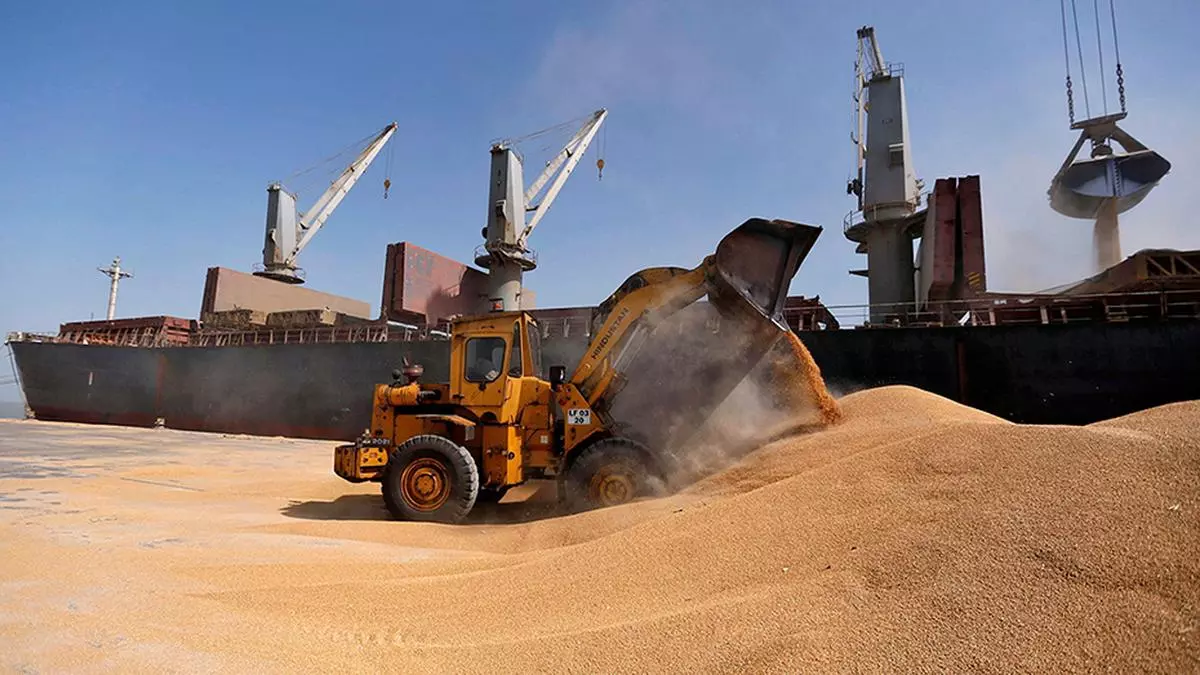Indian Govt imposes stock limit on wheat to keep domestic prices stable, check hoarding
Amid speculation about the wheat shortage in the country, the Indian Government on Monday invoked the Essential Commodities Act to impose stock limit on the grain, prescribing the maximum quantity that processors, traders, wholesales and retailers can keep at any point in time. The stock limit Order, effective from June 24 will be valid till March 31, 2025.
Asking stakeholders to conform to the stock limits as prescribed under The Removal of Licensing Requirements, Stock Limits and Movement Restrictions on Specified Foodstuffs (Amendment) Order, 2024, within next 30 days, the Food Ministry in a statement said each trader or wholesaler can keep a maximum of 3,000 tonnes of wheat any any point in time while the limit for retailers (including of big chains) will be 10 tonnes and for the big chain retailers it will be 3,000 tonnes at their depots. The stock limit for processors has been fixed at 70 per cent of monthly installed capacity (MIC) multiplied by remaining months of FY 2024-25.
Also read: Commerce Ministry to take up the issue of rice export curbs with inter-ministerial panel
For instance, a flour miller with 10,000 tonnes of MIC, the maximum stock he can keep at any point of time this year will be 0.63 million tonnes (mt) during July-March, 0.56 mt during August-March and so on.
An industry official said the Centre could have been more stringent with the norms. “Flour mills operate only at 60-70% of their capacity. Giving that much stock limit means giving their 100% quota. It is not needed. Government needs to ask where the rest of the stock is,” the official, who did not wish to be identified, said.
‘All options open’
Briefing media on prices of essential commodities, Union Food Secretary Sanjeev Chopra said the stock limit has been imposed to check the hoarding of wheat and to ensure price stability. Asked whether the government is considering to reduce import duty on wheat, he said “all options are open.” There are many tools to check retail prices and stock limit is one of such tools, he said.
“We want prices of wheat to remain stable,” Chopra said and added that there is 5.5 per cent rise in prices year-on-year.
The government did not extend the stock limit on wheat after it expired on March 31, 2024. However, it continued the stock declaration order from April 1 for an indefinite period under which the stakeholders have to submit their stock position of wheat on the specific portal and update it on every Friday. Then, the Food Ministry said the stock declaration would help manage the overall food security and prevent hoarding and unscrupulous speculation.
No shortage
But, Chopra claimed that there is no shortage of wheat. “I want to dispel the reports of shortage of wheat in the country as some media have been writing or broadcasting.” He said the current year’s wheat procurement, though tapering down now, has reached 26.6 mt as against 26.2 mt purchased by the government last year, which is 0.4 mt more. Besides, the opening stock of wheat was 7.5 mt on April 1, 2024 while it was 8.2 mt on April 1, 2023, he said, adding that the gap (in the opening stock) is only 0.3 mt.
Also read: NAFED hopeful of meeting onion procurement target even as farmers demand better rates
Asked whether the government will remove the ban on export of wheat, rice and sugar, he said there is no proposal to consider lifting wheat export ban. Similarly, there is no plan to review the current export policy of sugar, which allows shipments through permits and the government has not been issuing permits in the current sugar season, except for diplomatic requests. On rice export also, Chopra said there is no proposal to review the existing restrictions.
On resuming the open market sales scheme (OMSS) of wheat from the official reserves, he said “it is under process.”
